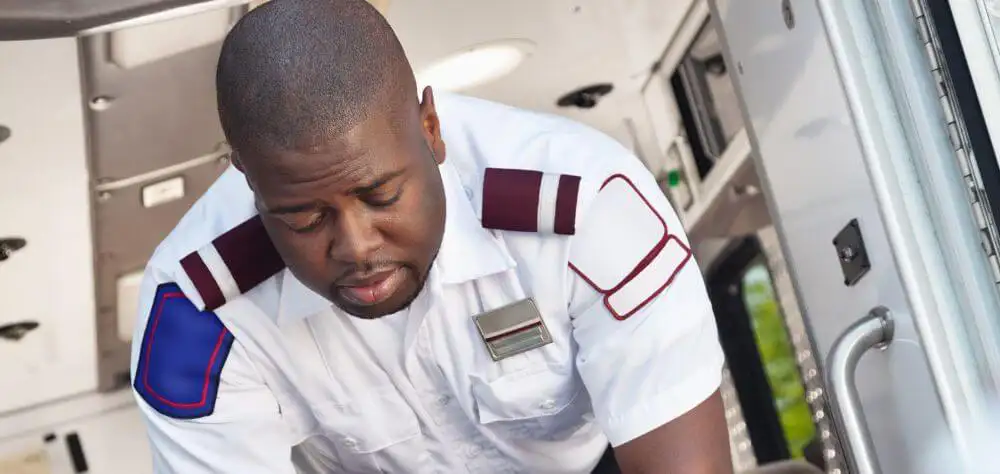How Long Does It Take to Become a Physician Assistant? A Comprehensive Guide
Becoming a Physician Assistant (PA) is a rewarding journey, but how long does it take to become a physician assistant? PAs are vital members of the healthcare team, providing medical care, diagnosing illnesses, and assisting in treatment plans under a supervising physician. Their role is highly respected and increasingly in demand.
Achieving this career requires rigorous education, hands-on training, and certification. At Southern California University of Health Sciences (SCU), our Master of Science in Medical Science (MSMS) program is designed to help students strengthen their academic credentials and prepare for competitive PA programs. Whether you’re starting fresh or enhancing your application, we’re here to support your aspirations and guide you toward your dream of becoming a Physician Assistant.
What It Means to Be a Physician Assistant in Today’s Medical Field
Physician Assistants (PAs) play a critical role in healthcare, blending advanced medical knowledge with compassionate patient care. Their scope of practice encompasses a wide range of responsibilities:
- Diagnosing Illnesses: PAs evaluate patient symptoms, order diagnostic tests, and determine underlying medical conditions.
- Developing Treatment Plans: They create comprehensive care strategies tailored to each patient’s needs.
- Prescribing Medications: In most states, PAs have the authority to prescribe medications under a physician’s supervision.
In addition to these duties, PAs work closely with physicians and healthcare teams to provide seamless, high-quality care. Their collaborative approach ensures patients receive the best possible treatment while optimizing the efficiency of medical practices.
Work Environments
Physician Assistants are found in a variety of healthcare settings, reflecting the flexibility and versatility of their role.
Common Workplaces Include:
- Hospitals: PAs assist in emergency rooms, operating rooms, and inpatient care units.
- Clinics: They often serve as primary care providers in outpatient settings.
- Specialty Practices: Many PAs work in fields like cardiology, orthopedics, and dermatology, offering focused expertise.
This diversity allows PAs to adapt to different medical environments and contribute meaningfully to patient care across various specialties. Whether in bustling hospitals or intimate clinics, PAs are an essential part of the healthcare system.
So, What Does It Take to Become a Physician Assistant?
The path to becoming a Physician Assistant is both exciting and demanding. It involves focused academic preparation, hands-on healthcare experience, and completing a rigorous PA program. With determination and the right steps, you’ll be ready to embark on this rewarding career.
Step 1: Earn a Bachelor’s Degree
The first step to becoming a PA is earning a bachelor’s degree. Most aspiring PAs major in fields like biology, health sciences, or chemistry, as these align with the prerequisites for PA programs. Typical prerequisites include courses in anatomy, physiology, and microbiology. This phase generally takes about four years to complete, depending on your course load and progress.
Choosing the right undergraduate program can make all the difference when applying to PA school. Which is why our Bachelor of Science in Health Sciences (BSHS) program offers a flexible, fully online curriculum that’s designed with pre-PA students in mind. You’ll complete the coursework needed for PA school applications while balancing work, internships, or other commitments. Plus, our transfer-friendly structure helps you maximize existing credits so you can move toward your goal faster.
Step 2: Gain Healthcare Experience
Hands-on patient care experience is a cornerstone of PA program applications. Many students gain this experience by working as a medical assistant, EMT, paramedic, or nurse. On average, applicants spend 1–3 years accumulating healthcare hours, which not only meet program requirements but also deepen their understanding of patient care and clinical settings.
Step 3: Complete a Physician Assistant Program
The final and most intensive step is completing a PA program, which typically lasts 2–3 years. These programs combine didactic learning (classroom instruction) with clinical rotations in various medical specialties like surgery, pediatrics, and internal medicine. PA programs are rigorous, requiring focus and dedication, but they prepare you to step confidently into your role as a healthcare professional.
The Real Timeline: How Long Does It Take to Become a Physician Assistant?
Becoming a Physician Assistant is a commitment that requires careful planning and patience. The timeline to achieving your PA dreams typically spans 7–10 years, factoring in undergraduate education, clinical experience, and the PA program itself. However, this timeline isn’t fixed—various factors can affect how long it takes.
Typical Timeline
The road to becoming a PA typically unfolds over 7–10 years, allowing you to build the expertise and experience needed to excel in this role:
- Undergraduate Education: Around 4 years to earn a bachelor’s degree, covering essential prerequisites like biology, chemistry, and anatomy.
- Healthcare Experience: 1–3 years spent gaining valuable patient care hours through roles like EMT, nurse, or medical assistant.
- PA Program: Another 2–3 years dedicated to a rigorous curriculum and clinical rotations that prepare you for the challenges of the profession.
This comprehensive timeline ensures you’re thoroughly equipped to deliver exceptional patient care and thrive in your career.
How to Fast-Track Your Path Without Sacrificing Quality
The time it takes to become a PA isn’t set in stone. You can take steps to accelerate your journey while maintaining the depth and quality of your education and training.
- Consider Accelerated or Dual-Degree Programs: Some schools offer programs that combine your undergraduate and PA studies, reducing the total time.
- Leverage Flexible Study Options: Full-time study helps you finish faster, but part-time programs provide flexibility if you’re juggling work or other commitments.
- Enroll in a Master’s Program: A Master of Science in Medical Science (MSMS) program can help bridge academic or experiential gaps, strengthening your credentials and streamlining your path to PA school.
- Maximize Patient Care Opportunities: Choosing roles like EMT or paramedic can help you accumulate patient care hours more quickly, fulfilling program requirements in less time.
Bridging the Gap: A Smarter Path to Becoming a Physician Assistant
If you’re aiming for PA school a bridge program can be a transformative step. These programs help you build your credentials, gain valuable experience, and enhance your competitiveness in a highly selective application process.
Overcoming Academic or Experience Gaps
For aspiring PAs who may not meet the traditional application requirements, bridge programs like SCU’s Master of Science in Medical Science (MSMS) provide a second chance. These programs help:
- Strengthen academic foundations, especially in key areas like biology, biochemistry, and physiology.
- Offer personalized guidance and faculty support to address weaknesses.
- Provide structured opportunities for growth in clinical, research, and critical thinking skills.
By bridging gaps, these programs pave the way for a more confident and competitive PA school application.
The SCU Advantage: Your Path to PA School and Beyond
Dreaming of becoming a Physician Assistant? At SCU, we’re here to turn your aspirations into reality. Our supportive, hands-on learning environment is designed to equip you with the skills, tools, and confidence to excel in advanced healthcare roles, including PA programs.
SCU’s Master of Science in Medical Science Program
Our Master of Science in Medical Science (MSMS) program is tailored to help you strengthen your academic foundation, boost your application credentials, and gain the competitive edge needed to stand out.
- Flexible Options: Choose the schedule that suits your life—3 Terms (11 months) online or blended, or 5 Terms (20 months) fully online.
- Hands-On Learning: Our case-based approach mirrors real-world healthcare challenges, giving you practical skills you’ll carry into your career.
- Interprofessional Education: Collaborate with peers from various healthcare disciplines to develop essential teamwork skills.
- Expert Faculty: Receive mentorship from dedicated professionals invested in your success.
When you invest in a program like this, you’re not just preparing for PA school—you’re preparing for success in your entire healthcare career.
Strengthen Your Chances of Admission
In just one year, you can transform your academic portfolio and significantly improve your chances of PA school admission. Our rigorous curriculum strengthens your foundation in critical sciences like biology, biochemistry, and physiology. Additionally, the MSMS program includes an optional, self-paced MCAT prep course to boost your Medical College Admissions Test scores if desired. This comprehensive preparation equips you to succeed in PA school or other competitive healthcare programs.
Guaranteed PA Program Interviews
As an MSMS graduate, you’ll have the unique opportunity to secure a guaranteed interview with SCU’s Master of Science: Physician Assistant (MSPA) Program, provided specific requirements are met. This advantage puts you one step closer to achieving your goals, offering a direct pathway to a fulfilling PA career. For details, visit the PA admissions requirements page on our website.
Accessible and Affordable Education
We believe education should be accessible and achievable for everyone.
- Flexible Financial Options: With fixed-rate tuition and financial aid opportunities, we’re here to make your education more affordable.
- Personalized Support: Small class sizes and individual guidance ensure you’re never just a number—we’re invested in your success every step of the way.
Whether you’re preparing for PA school or looking to enhance your academic credentials, SCU is your partner in achieving your dreams.
Build Your Future in Healthcare with SCU Today
Becoming a Physician Assistant is an exciting and rewarding journey, but it starts with having the right foundation. If you’ve been wondering how long does it take to become a physician assistant, the answer is shaped by your commitment and preparation. At SCU, we provide the tools, resources, and support you need to succeed—from strengthening your academic credentials to preparing you for the challenges of PA school.
Your dream of becoming a PA is within reach, and we’re here to help you every step of the way. Explore our program options, review the requirements, and take the first step toward your future. Apply today and let’s make it happen together!
FAQs
How long does it take to become a physician assistant?
On average, it takes 7–10 years to become a PA. This includes earning a bachelor’s degree (4 years), gaining patient care experience (1–3 years), and completing a PA program (2–3 years). Timelines may vary based on individual circumstances.
Do I need a specific undergraduate major to apply to PA school?
No, but most applicants major in biology, health sciences, or a related field. What matters most is completing the required prerequisites, such as anatomy, physiology, and chemistry. Check the requirements for the programs you’re targeting.
Can I work while attending a PA program?
PA programs are typically full-time and very demanding, making it challenging to work simultaneously. However, some students manage part-time work during less intensive periods. It’s best to focus fully on your studies if possible.
How can a Master’s in Medical Science program help me become a Physician Assistant?
A Master’s in Medical Science (MSMS) program strengthens your academic foundation in medical sciences, boosts your competitiveness for PA school, and bridges gaps in experience or credentials. With our program, you’ll gain the confidence and preparation needed to excel in PA programs.
Can a pre-PA Master’s program help me get into PA school?
Absolutely! Pre-PA programs can strengthen your academic foundation, boost your competitiveness, and help address any gaps in your application, such as low grades or limited healthcare experience. They’re a great option for aspiring PAs.
Related Posts





